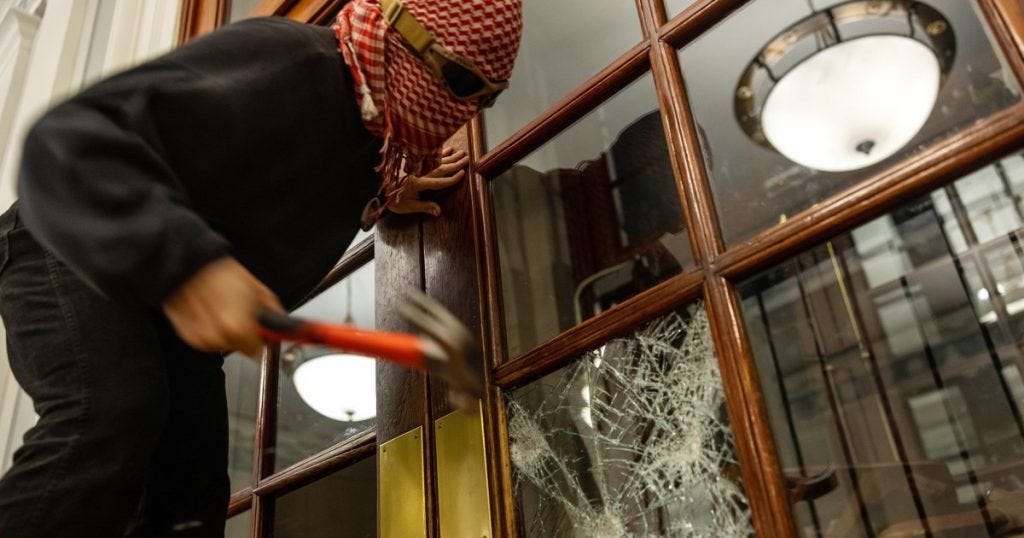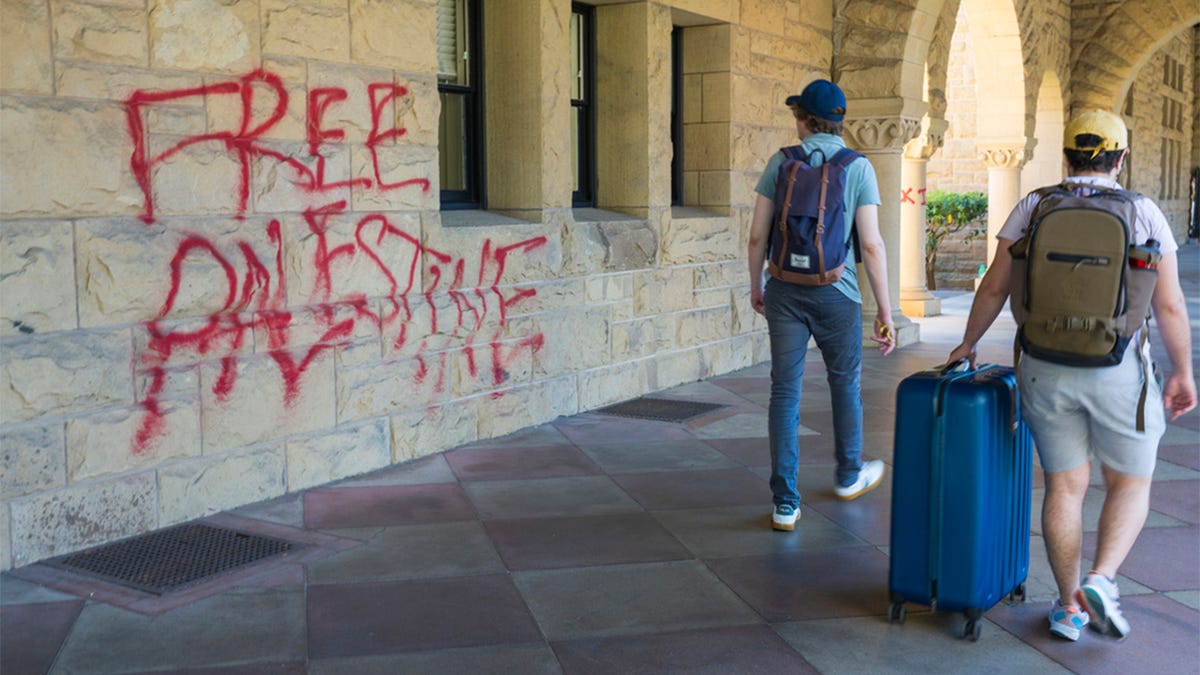'HATE SPEECH' = FREE SPEECH
Right-wing pundits and lawmakers have jumped the shark as they abandon the First Amendment in the name of antisemitism.
"There is fundamental First Amendment harm whenever the state tries to silence pure speech on the basis of its viewpoint" — Brian Hauss, ACLU lawyer.
In recent years, many conservatives have labeled liberals as "snowflakes"—an easily offended group of contemptuous weaklings who seek government protection for their feelings through attempts at passing "hate speech" laws, the requirement of "safe spaces" in corporations and universities, and the use of the broad term "micro-aggressions" to justify canceling co-workers, classmates, and professors.
Now, in the wake of pro-Palestine college protests, conservatives are the ones advocating for “hate speech” laws in response to rising antisemitism. This flip-flopping on “snowflakery” behavior highlights why we need the First Amendment. It's clear that any argument involving the Palestinian-Jewish conflict is complex and deserves more than a knee-jerk binary conclusion.
Depending on who is in power, the voice of the opposition could easily be deemed "hate speech." In a free society, it is essential to allow hateful speech to avoid government censorship of unpopular views.
As Supreme Court Justice Oliver Wendell Holmes said in United States v. Schwimmer, “[I]f there is any principle of the Constitution that more imperatively calls for attachment than any other, it is the principle of free thought — not free thought for those who agree with us but freedom for the thought that we hate.”
That said, the First Amendment does not protect violence, vandalism, threats, and deliberate imminent incitement. The recent university protests could be used as an example of when free speech turns sour. After some of Columbia University’s activists (and possibly outside agitators) broke the college’s peaceful assembly rules, threatened students, and vandalized Hamilton Hall —the police descended, and the university shut down the encampments.
The danger lies in the government acting as a soothsayer, like something out of the film Minority Report, determining the intent of speech and punishing those they deem "hateful" based on whatever arbitrary definitions that particular agency decides.
The Supreme Court even overturned the Childhood Pornography Prevention Act of 1996 in Ashcroft v Free Speech Coalition in 2002 as it might be interpreted to restrict more than just porn, and could possibly mean that reading, watching or possessing works of art like Romeo and Juliet and it’s film iterations could mean severe punishment.
If these films, or hundreds of others of lesser note that explore those subjects, contain a single graphic depiction of sexual activity within the statutory definition, the possessor of the film would be subject to severe punishment without inquiry into the work's redeeming value. This is inconsistent with an essential First Amendment rule: The artistic merit of a work does not depend on the presence of a single explicit scene.
Currently, the definition of anti-semitism that DeSantis and college campuses are proposing to use is likewise arguably too vague. Free expression is not only political speech but also covers science, religion, morality, and art.
If we can have a healthy debate over the broad use of terms when defining child pornography, I hope we can apply the same precision when examining other laws that may inhibit our freedoms, even if it is uncomfortable or seems evident.
We all want to live in a society where hate speech doesn't exist, but we could end up in a world where saying "Christ is King" (the core concept of the New Testament) or even "Taylor Swift is boring vanilla pop" could be interpreted as hateful and thus punishable by law.








Well said. There no longer (if there ever was) seems to be a "right-wing" and a "left-wing", just different sides of the same coin throwing fits over what shouldn't be said.